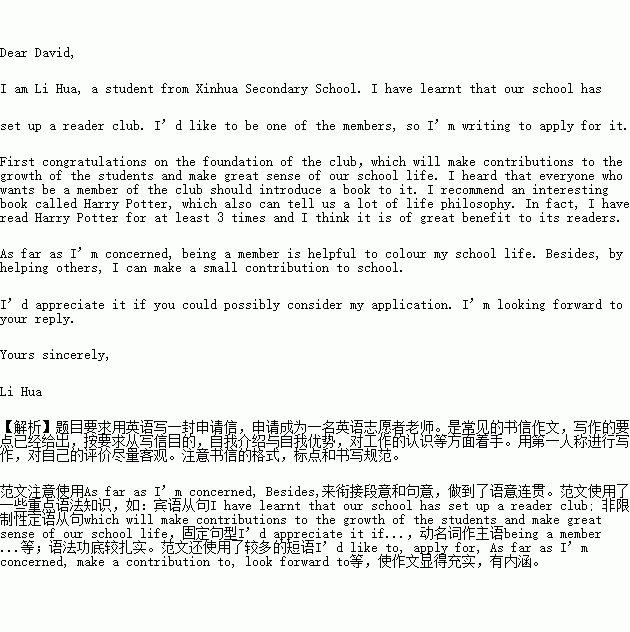��Ŀ����
������������»���ѧѧ������У��������˶��߾��ֲ�����Ϊ���ֲ���Ա��Ҫ�����Ҫ�Ƽ�һ�����ͬѧ�ǡ����������Ҫ�㣬дһ���ʼ������ֲ�������David��
�� ף�ؾ��ֲ��ij�����
�� �Ƽ��鼮 Harry Potter���������Ƽ����ɣ���������Ȥ�������������������ȣ�
�� ���߾��ֲ��ij�����ѧ�������壬���������Ϊ����һԱ��Ը����
ע�⣺����������80������������䷭�룻�ʼ���ʽ����ͷ�Ѿ��������������ܴ�������
�ο��ʻ㣺 �������� philosophies of life
Dear David,
I am Li Hua, a student from Xinhua Secondary School. ______________________________
_____________________________________________________________________________
_____________________________________________________________________________
_____________________________________________________________________________
_____________________________________________________________________________
_____________________________________________________________________________
Yours sincerely,
Li Hua

